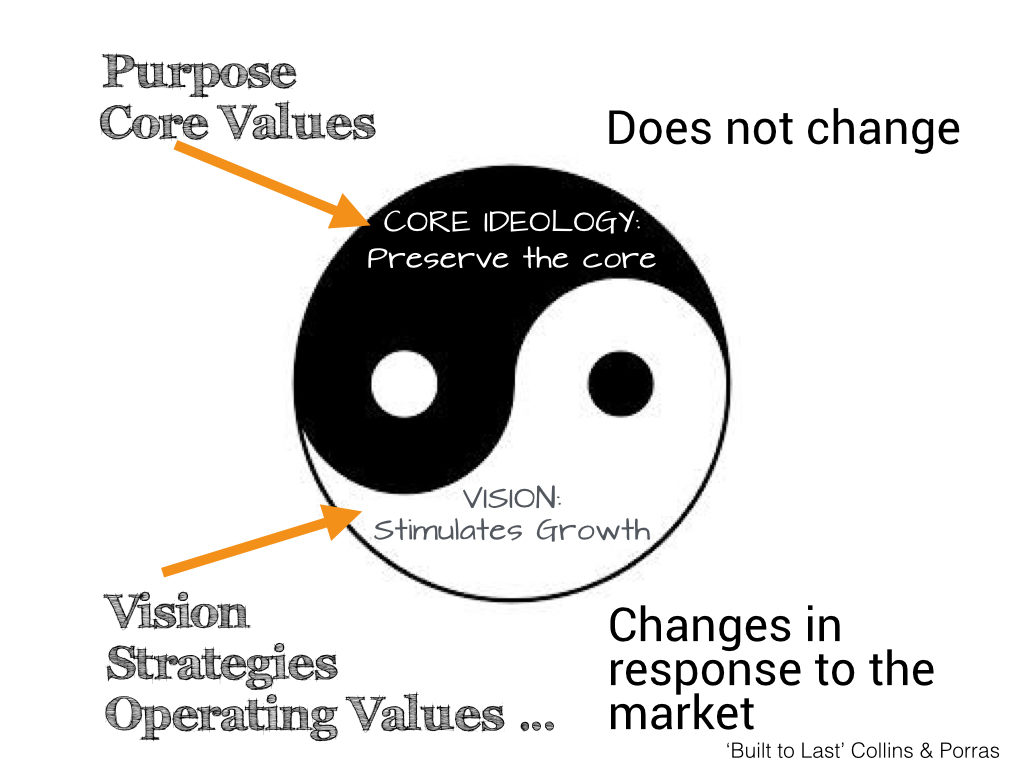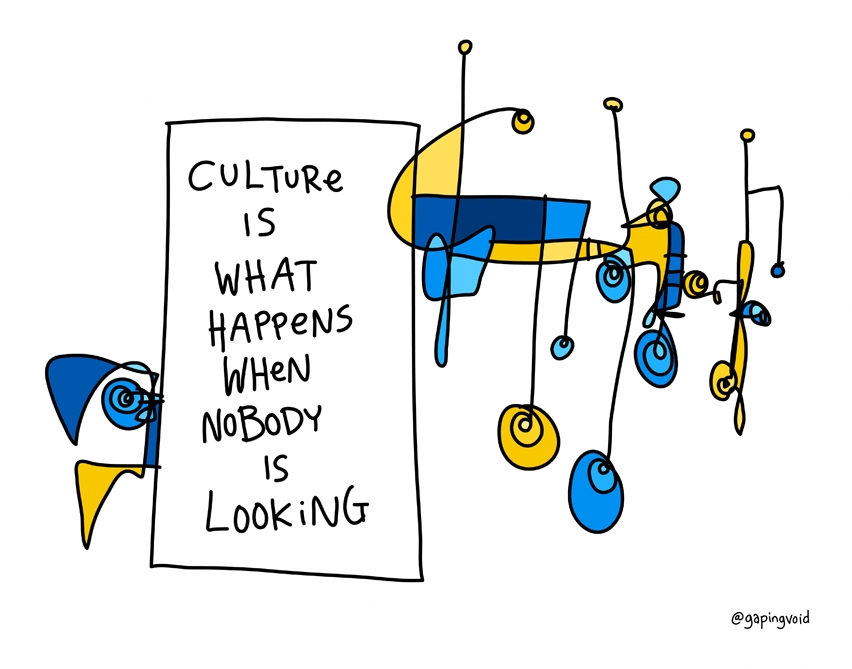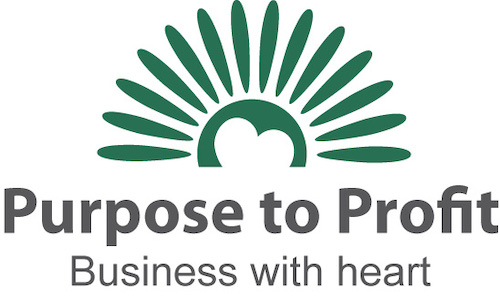Mid-sized businesses. Who are they? Where do you find them?
Known as the ‘forgotten middle’ of the business world, these companies employ 20-200 people. They account for 27,500 or 1.4% of Australian businesses, 34% of revenues, 23% of all full-time and part-time employees. And they are responsible for 19% of borrowings and deposits.
They’re not the sexy start-ups or the large organisations with heaps of clout.
Mid-sized businesses do have significant advantages though. They’re more stable than small business and more agile larger corporations.
For these owners and leaders, the pathway to success is to do more with less by focusing on building a high performing business. It all starts with Purpose: why the business exists and the difference it makes to the broader community.
1. Purpose, Vision and Strategy

Purpose is a guiding principle that provides direction, focus and emotional engagement for all associated with the business.
It informs business decisions at all levels.
Because staff are dedicated to a cause bigger than their own agenda, they feel fulfilled by their work.
Purpose breaks down barriers between diverse groups enabling collaboration. When people connect with a common cause in an environment that invites input, innovation is a natural outcome.
It’s the big ‘Why?’. Purpose and Core Values provide the core ideology: what’s critical for the business, how it shows up as well as the foundations of culture.
Vision (what) and Mission (how), together with the strategies, then provide the direction for the business. While Purpose and Core Values remain constant, Vision and Strategies change in response to a dynamic market.
Leaders are responsible for showing the way by living the Purpose through their decisions and day-to-day behaviours.
2. Leadership
Leaders impact every measurable dimension of business from identifying or embedding Purpose, flowing through to strategy, culture, engagement and innovation, to high performing teams, customer advocacy and bottom line.
According to Robert Hogan, 60-75% of direct reports globally consider their leader to be incompetent.
Recognising the importance of leadership, organisations are now investing significantly in identifying emerging leaders and increasing leadership capability.
Benjamin Zander compared his role as conductor of the Boston Philharmonic Orchestra to the role of the leader in any organisation. Both are about igniting passion, opening up possibilities and bringing out the best in their people.

3. Management
Managers implement strategies guided by the business Vision and overarching Purpose. Most importantly, managers are responsible for inspiring their people. They need to recognise the role of motivation plus how to tap into it, the importance of fit between the individual and the role, the critical nature of managing expectations and the bridges or barriers that can promote or get in the way of performance.

They identify emerging talent and directly impact engagement. Talent joins the business and leaves – or leaves with – the manager.
4. Culture and Innovation

Simply put, culture enables the strategy and is influenced by the values in action. The challenge is values are usually elicited from a wish list rather than the embedded principles of the founders and leaders. Most businesses of any size have a split between stated values and those the organisation actually lives by – the unwritten ground rules.
Developing competitive advantage, significantly increasing profitability and continually delivering beyond customer expectations are potential outcomes of innovation.
However, to access the innovative potential of your people, the culture needs to be open to the risk that comes from pushing the envelope.
5. Brand and Reputation
High performing businesses pay attention to brands in two contexts. First, the Employer Brand and the resulting Employee Value Proposition, used to attract, retain and engage talent.

The second context is the brand that customers/clients identify via the company’s marketing interactions.
When both brands for the business are expressions of your business Purpose and Core Values, they are powerful, authentic, aligned and trustworthy.
Your reputation is earned over time. How do you consistently show up? How do you handle the good times and the challenging situations? Are you expert in your area? Do you clearly care for and about your clients? Do you keep your word? And probably the most important question “What is the experience you create for your clients?
In the words of Maya Angelou “… people will forget what you said, people will forget what you did, but people will never forget how you made them feel.”
6. Employee Engagement
Engagement is the Holy Grail of business and the idea of individuals contributing to its success at a higher level is mutually attractive. Engagement can’t be dictated, it can only be invited.

Benjamin Zander posed the question of how a leader will know they’ve done their job. His answer? Shiny Eyes.
Research indicates that lack of engagement is estimated to cost the Australian economy around $31.2 billion pa.
Flipping to the positive, Gallup has found that high engagement delivers 41% less absenteeism, 24% less staff turnover, 21% greater profitability and 17% greater productivity. Pretty critical measures of high performance!
7. Processes and Structure
As the business increases in complexity, more sophisticated systems and processes are required. Engaged employees use their day-to-day experience to help refine systems that deliver greater business efficiency and effectiveness.

Conclusion
Addressing these seven areas allows a business to grow exponentially. Silos break down, managers step up and teams deliver higher performance. The business is seen as a preferred employer. Customer satisfaction and advocacy lifts, expenses reduce and all stakeholders benefit.
For a mid-sized business, there are some really easy wins in this mix and they just may be enough to increase profitability in a relatively short period of time.

Suzanne Mercier is a behaviour change specialist drawing on 30 years of experience in marketing, advertising, business strategy and human behaviour. She speaks, trains, consults and coaches leaders, managers and business owners to help them recognise and shift barriers preventing them from achieving their dream careers, businesses and reputations. She is a published author. You can find Suzanne at www.purposetoprofit.com.au email suzanne@purposetoprofit.com.au or phone on 0400 995 942 for an obligation free conversation.


